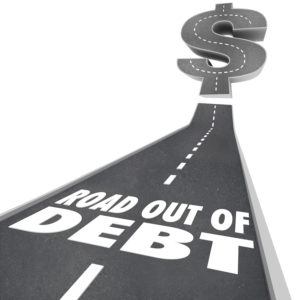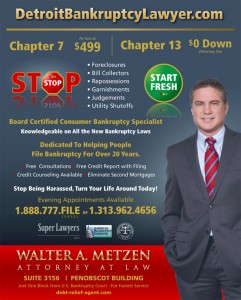Contents
100% CHAPTER 13 PLANS: NOT JUST DEBT CONSOLIDATION
One of the most widespread misconceptions about Chapter 13 bankruptcy is that it is simply another form of debt consolidation.
This is incorrect. Legitimate “debt consolidation” involves a reputable bank or credit union extending a loan to a customer which they may then use to “consolidate” other debts: credit cards, medical debt, and so on. That “debt consolidation” loan is then repaid to the lending institution at some contractual interest rate.
Less legitimate forms of debt consolidation are those offered by “businesses” which take monthly fee payments from customers in exchange for a promise to negotiate a “less than is owed” settlement with each creditor owed, one after another, until no debt remains.
The problem there is that these “debt settlement” businesses have: A) no power to stay a person’s creditors from engaging in collection attempts, including lawsuits and garnishment; B) no special skill or expertise in such settlement negotiations; and C) no license or credential to risk should they fail to successfully negotiate on your behalf—which is very often the case.
Chapter 13 bankruptcy does not resemble these forms of “debt consolidation” in a number of key respects.
CHAPTER 13 BANKRUPTCY: CRUCIAL DIFFERENCES

Chapter 13 has many advantages over a debt management program or “bill consolidation”.
In a Chapter 7 bankruptcy process, you don’t pay anything back to your creditors at all (unless you hold some form of debt that is not dischargeable, such as child support arrears).
In a Chapter 13 bankruptcy process, you do pay something back to your creditors. Depending on a variety of factors described in our article here, the amount you pay back to your creditors may be higher or lower.
The important differences from non-bankruptcy “debt consolidation” measures as described above are:
- The moment you file a Chapter 13 bankruptcy, an injunction under Federal law called the “automatic stay against collections” prevents your creditors from taking any action to collect your debts, including lawsuits and will immediately stop garnishments and repossessions and foreclosures;
- The amount you pay per month to your creditors in a Chapter 13 is not paid directly to the creditors but to an individual known as the Chapter 13 Trustee who will disburse funds to your creditors only in accordance with Federal law;
- Whatever you do repay to your creditors via the “Chapter 13 Payment Plan” is repaid, typically at 0% interest with no further late fees or penalties after the date your bankruptcy case is filed;
- Whatever balance creditors do not receive in disbursement from the Chapter 13 Trustee is totally discharged at the end of the Chapter 13 process, just as they are discharged in full in a Chapter 7 bankruptcy;
- No negotiation with any of your creditors is required. What the Federal Bankruptcy Code says that they should receive from your Chapter 13 payment plan is all that they will receive;
- Important debts such as a mortgage arrearages, child support arrearages, and non-dischargeable income tax debts are repaid by the Chapter 13 Trustee in priority order over unsecured debts such as credit card balances and medical debts;
- What you pay to the Trustee each month is what net income you have left after your necessary household expenses, such as food and transportation and other budgetary items, are deducted from your average monthly take-home pay …
In other words, you will, in most Chapter 13 payment plans, pay only what you can afford to pay, and, in most plans, pay only a percentage of what you owe, from 1% to 50%—or more.
CHAPTER 13 BANKRUPTCY: 100% PAYMENT PLANS
So what if that percentage is 100%? Is a Chapter 13 bankruptcy still offer value? Isn’t a 100% Chapter 13 Plan (as they are known) pretty much the same as just paying your debt off yourself?
Re-read the bulleted list above for the answer.
Even a 100% Chapter 13 differs from any non-bankruptcy alternative for those reasons: no interest, no late fees, no penalties, no lawsuits—and time to breathe.
There are a couple of additional reasons why even a 100% Chapter 13 bankruptcy plan is better than dealing with creditors outside of bankruptcy.
First, in order for any creditor to be paid from a Chapter 13 plan, they must file something called a proof of claim with the Bankruptcy Court.
The “proof of claim” is a form that creditors file that states how much they claim is owed, why it is owed, and other such information. Creditors are further required to attach to the form documentation proving that they are the correct entity to collect the debt. (Whether they do that or not is another conversation.)
If a creditor fails to file a proof of claim—the debt is discharged in full and the creditor is paid nothing.
If a creditor files a proof of claim with insufficient (or outright fabricated) documentation attached, your bankruptcy attorney also has the opportunity to object to the claim and have it disallowed by order of the Bankruptcy Court. If this occurs, the creditor’s claim is again discharged with no payment made at all.
It is a “dirty secret” of the Chapter 13 process that, very often, even when you are in a “100% Plan,” what you are paying 100% of is less than you would outside of the bankruptcy process simply because X number of your creditors will not file proofs of claim or will file such deficient proofs of claim that your bankruptcy attorney is able to have them disallowed.
Second, merely by filing a Chapter 13 bankruptcy case, you have set yourself on a track that will eliminate your debt in no more than 60 months (5 years).
The minimum length of a Chapter 13 payment plan is 36 months, or 3 years. The maximum length is 60 months or 5 years.
Outside of bankruptcy, even if you diligently repay more than the minimum payment amounts allowed on one or more of your debts, who knows how long it will be until it is all fully repaid? Likely, given interest rate escalation and other fees and penalties (not to mention the bumps and detours that we tend to encounter on the road of life), it will take far more than 5 years.
At most, in a Chapter 13, you will be debt-free in 5 years.
Better, however, is this: the 36-month minimum plan length is a rule that applies only to Chapter 13 plans that pay less than 100% to your creditors.
If you propose a 100% payment plan, you will be out of the Chapter 13 process with your discharge in hand as soon as you’ve paid 100% of the amounts of the proofs of claim actually filed and not disallowed.
Depending on the amount of your monthly plan payment, it could be even more quickly than 36 months.
MICHIGAN CHAPTER 13 BANKRUPTCY: THE BOTTOM LINE ON 100% PLANS
The bottom line is that one should not run screaming from the prospect of a Chapter 13 simply because it may be a high-percentage or 100% plan. Even full repayment of your debt through a Chapter 13 payment process will, in many circumstances, be more affordable than paying it in its entirety outside of bankruptcy—and certainly more affordable than suffering late fees, collections harassment, or garnishment if you find yourself unable to stick to your alternate plan.
To discuss your possible Chapter 13 filing, contact The Law Offices of Walter Metzen & Associates today.
I am a Board Certified, highly experienced Michigan Bankruptcy Attorney. I have filed over 20,000 cases in the Detroit Bankruptcy Court. At my office, you will not meet with a legal assistant and we offer same day appointments. I offer free consultations to determine whether bankruptcy is the right option for you, and if so, I specialize in both Chapter 7 and Chapter 13 bankruptcy cases in Michigan. Call today and get your questions answered by an experienced bankruptcy attorney who understands the financial pressures you are facing.





